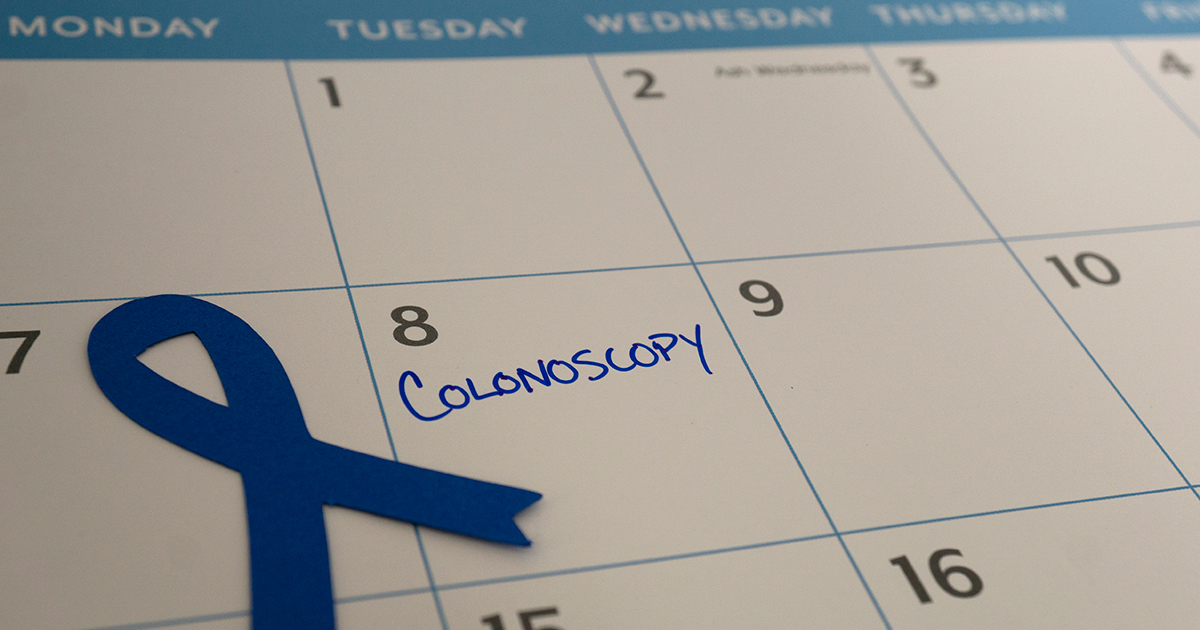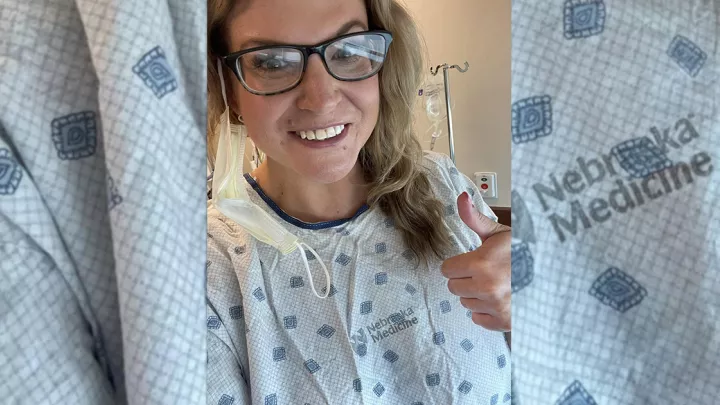Colonoscopy, Cologuard® and more: What to know about colorectal screening options

Colorectal cancer screening is essential to preventing cancer; catching it early can save your life. As the second most common cause of cancer deaths in the United States, the incidence of colorectal cancer is also rising in younger people, prompting the need for more awareness. Colorectal cancer is the term used for colon cancer and rectal cancer. They are both treated with multi-disciplinary care.
Most have heard about colonoscopies as the gold standard for detecting colorectal cancer. At-home screenings like Cologuard® have arrived on the scene and are gaining popularity.
What are the differences? Which is the best screening option for you? Nebraska Medicine colorectal surgeon Rishi Batra, MD, weighs in on the topic.
Risk factors, screening options and when to do it
You take a crucial step in preventing cancer with any screening, but there are differences. Screening should begin at age 45 unless you are at higher risk. If you have a family history of colorectal cancer, your doctor will recommend screening sooner and more often, likely every five years.
It's essential to understand your risk factors. According to the American Cancer Society, people are generally considered to be at average risk if they do not have a:
- Personal history of colorectal cancer, certain types of polyps or inflammatory bowel disease (ulcerative colitis or Crohn's disease)
- Family history of colorectal cancer
- Confirmed or suspected hereditary colorectal cancer syndrome, such as familial adenomatous polyposis or Lynch syndrome
- History of radiation to the abdomen or pelvic area to treat a prior cancer
Lifestyle factors may contribute to increased risk, including a sedentary lifestyle, poor diet, obesity, and alcohol or tobacco use.
Two main types of colorectal cancer screening
- Visual (structural) exams like colonoscopies look at the structure of the colon and rectum for abnormalities.
- Stool-based tests (MT-sDNA or FIT-DNA) check your stool for signs of cancer. Cologuard® falls into this category.
Colonoscopy or Cologuard®: What's the Difference?
Colonoscopy
The colonoscopy is both diagnostic and therapeutic. With sedation, you are kept comfortable while a scope with a camera looks throughout your colon. If polyps are found, they can be removed immediately to prevent potential cancer growth. A colonoscopy can detect other abnormalities, such as inflammatory bowel disease (ulcerative colitis or Crohn's disease) and diverticular disease.
Multitargeted stool DNA-FIT tests like Cologuard®
MT-sDNA or FIT-DNA tests require a stool sample collected at home and mailed to a lab for screening. Cologuard® combines the FIT test with an additional test that detects genetic mutations found in cancer cells.
Know the facts about each colorectal screening type
When deciding, consider the pros and cons of each screening type and talk to your doctor about them.
Colonoscopy
Colonoscopy remains the gold standard for colon and rectal cancer detection. There are many good reasons for this, including the procedure's high sensitivity, flexibility and longer time periods between screenings.
Colonoscopy pros:
- With a direct view, doctors can detect growths or polyps early. Detecting polyps as small as two millimeters, they can be removed immediately
- Colonoscopies have a 95% overall cancer detection rate, which is the highest of any colorectal screening test
- If your colonoscopy is normal, you may not need another for 10 years if you have no family history or other risk factors
- While a colonoscopy is a procedure, you have options for sedation, including moderate or monitored anesthesia to keep you comfortable
- If a large number of polyps are found, genetic testing may be recommended
- A colonoscopy is recommended if you have blood in your stool
Colonoscopy cons:
- Requires bowel prep
- Invasive and requires sedation
Multitargeted stool DNA-FIT tests like Cologuard®
At-home FIT screenings vary by subtype. Cologuard® tests for abnormal DNA markers, blood and antibodies in the stool. It is intended for adults ages 45 and older, with its performance based on patients over 50.
Cologuard® pros:
- Noninvasive
- At-home convenience
- No prep needed
Cologuard® cons:
- Only recommended for those at average risk. You are not a good candidate if you have a previous history of polyps, a strong family history of colorectal cancer, have inflammatory bowel disease or certain hereditary syndromes
- Less sensitive than a colonoscopy and only detects larger polyps or masses
- Cannot differentiate between advanced polyps and adenocarcinoma (cancer)
- A positive test result does not confirm cancer. If you have a positive result, you will still need a colonoscopy
- A negative test result does not confirm the absence of cancer. A negative result should prompt a discussion with your doctor about the timing of a repeat test
- 92% overall cancer detection rate with a 13% false positive rate and an 8% false negative rate
- Must be repeated every three years
- Insurance may or may not cover it. It can be expensive at nearly $650 per test
- If an abnormality has been detected at any point, you are no longer a candidate for future use
- If you have a positive result, the colonoscopy you will need is no longer considered a screening. It becomes a diagnostic colonoscopy which may become part of your insurance deductible. Check with your individual insurer about coverage.
Colorectal cancer warning signs or symptoms
Warning signs include:
- Unintentional weight loss
- Blood in stool
- Change in bowel habits
May also include:
- New onset fatigue
- Abdominal pain or cramping
Can colorectal cancer be cured?
"Yes, if it's still local and hasn't spread to other organs," says Dr. Batra. "Many can be cured by surgical resection and, if necessary, chemotherapy. We take a multidisciplinary, collaborative treatment approach for the best outcomes possible."
Who performs colonoscopies with Nebraska Medicine?
Nebraska Medicine gastroenterologists, colorectal surgeons and family medicine doctors perform colonoscopies. A split prep is used over two days, making preparing for a colonoscopy easier.
Talk to your doctor about screening options.






